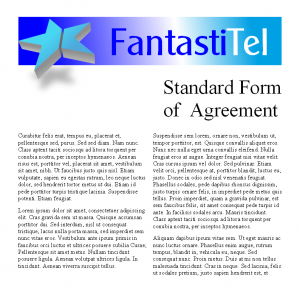 Almost certainly, a telco’s Standard Form of Agreement needs to be updated because of the TCP Code. Here’s a checklist of ten items you should review your customer terms for.
Almost certainly, a telco’s Standard Form of Agreement needs to be updated because of the TCP Code. Here’s a checklist of ten items you should review your customer terms for.
1. Clarity and plain language
Under the Code, all your customer-facing documents need to be in plain language. You probably need a company policy about communication and language, including for your SFOA.
2. Unilateral variations to the contract
Under the combination of the TCP Code and the Australian Consumer Law, it’s almost certainly illegal to include an SFOA term that you can change the contract document unilaterally, where the customer is a non-business user. If you really need a term like that, it has to be balanced up with some extra wording in favour of the customer eg no penalty early termination rights.
3. Existing early termination rights can be reconsidered
The old TCP Code contained quite a detailed number of contract terms that were considered OK if you gave the customer at least 21 days notice and a 42 day penalty free walk away period. This has been replaced with a more general rule about unfair terms, that doesn’t specify time periods.
If your SFOA hard codes the old rules, you might review those clauses to see if they still make sense. Some providers seem to have decided they do, and are keeping them (so far). But you might reach a different view.
4. Penalty or arbitrary payments for breach
For non-business customers, you can’t say things like ‘Late invoice payment incurs a $20 extra charge (just because we like the sound of that number).’
The TCP Code and ACL don’t use this word, but it’s like a Government imposing a fine. Credit management charges have to be based on some real cost or loss you suffer.
5. Back billing now limited to 160 days
Under the 2007 version of the TCP Code, you could pass on charges to a customer up to 190 days after they were incurred. From 1 September 2012, that’s reduced to 160 days. The 190 day period is hard coded into many SFOAs, and needs to be updated.
Please log in to continue





